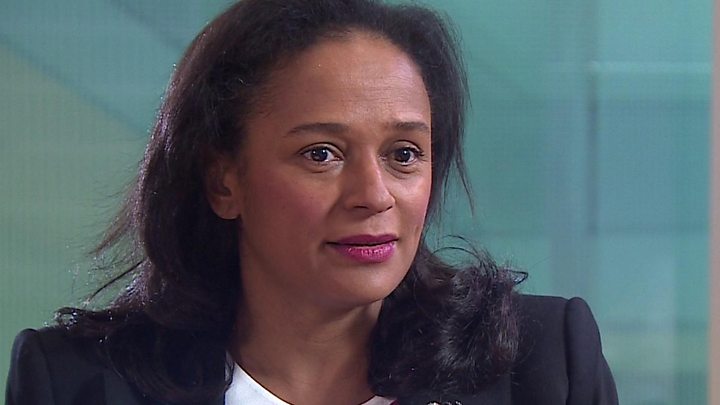Africa’s Richest Woman Just Got Fired From Her Biggest Job

Isabel Dos Santos, the woman listed by Forbes as Africa’s first female billionaire, has been unceremoniously fired from her post as head of Angola’s national oil company Sonangol, according to newswire reports.
Dos Santos, 44, is the daughter of Angola’s former president Jose Eduardo dos Santos, who had ruled the country since independence in 1979 until stepping down earlier this year. Forbes estimates her total wealth at $3.5 billion, although she has generally put it much lower.
News of her firing comes on the same day that Zimbabwe’s 93 year-old Robert Mugabe, the last of the generation of African leaders to take over from colonial rule, has had his hold on power broken by army units loyal to his former bodyguard Emmerson Mnangagwa.
In a country that depends overwhelmingly on oil exports for hard currency, Dos Santos had made fortunes in mobile telecoms and supermarkets, benefiting – her critics say – from family connections, before being appointed head of Sonangol in 2016.
Her father had hoped she could use her business acumen and political standing to clamp down on theft from the state oil company as it struggled to adjust to the sharp fall of oil prices over the previous year. Angola habitually ranks near the bottom of the NGO Transparency International’s Corruption Perceptions Index (164th in a list of 176 countries in the 2016 rankings).However, stopping embezzlement from state oil companies is easier said than done. In Nigeria in 2014, Lamido Sanusi was fired as head of the central bank after trying to track down $20 billion that he said had been stolen from that country’s state oil company, NNPC.
Dos Santos’ position at Sonangol had appeared to be in trouble in recent weeks, as the incoming president, Joao Lourenco, had installed his appointees in other key positions in government.
Lourenco has taken over the country as it faces its deepest economic crisis in decades. Angola’s currency, the kwanza, has lost nearly half its value since oil prices collapsed in late 2014 as Saudi Arabia embarked on its ill-fated attempt to choke the U.S. shale oil revolution.
While crude prices are now back at their highest level in two years, the kwanza hasn’t recovered. Having refused to agree to the International Monetary Fund’s conditions for a standby arrangement, it has had to mortgage more and more of its natural wealth to China to get its hands on ready cash.
Moody’s ratings agency downgraded its sovereign debt to B2 in October, citing a “diminished medium-term growth outlook, constrained by foreign currency shortages,” as well as inflation running at over 20%, sharp budget cuts, and a fragile banking system. And, of course, a massive budget deficit because of a lack of alternative sources of revenue: Moody’s noted that the country’s gross borrowing requirements through 2019 will average 17% of GDP, because much of the debt it issued during the boom times is falling due in the next two years.
Whether Dos Santos’ firing will do anything to improve the situation at Sonangol isn’t clear. According to Reuters, she’s to be replaced by Carlos Saturnino, an oil veteran who was fired by Dos Santos from Sonangol last year, and who was most recently Secretary of State for Oil. And among the others to be dismissed in a general shake-up at the top of the company were Sarju Raikundalia, a senior PwC executive brought in to clean up its finances; and Eunice Carvalho, who previously worked for Chevron and was leading Sonangol’s restructuring.